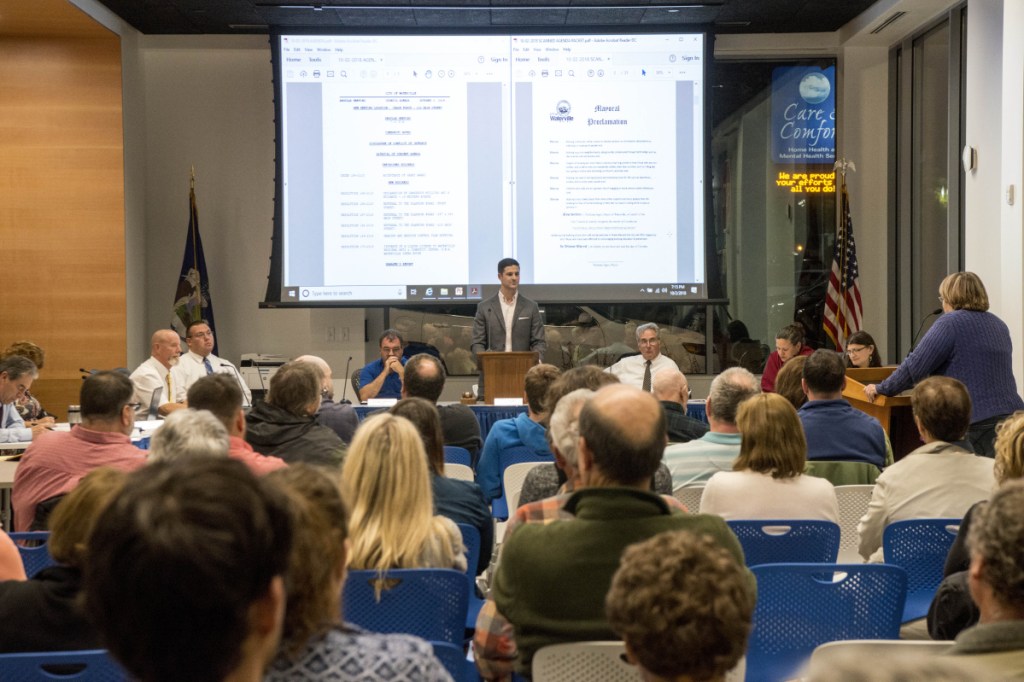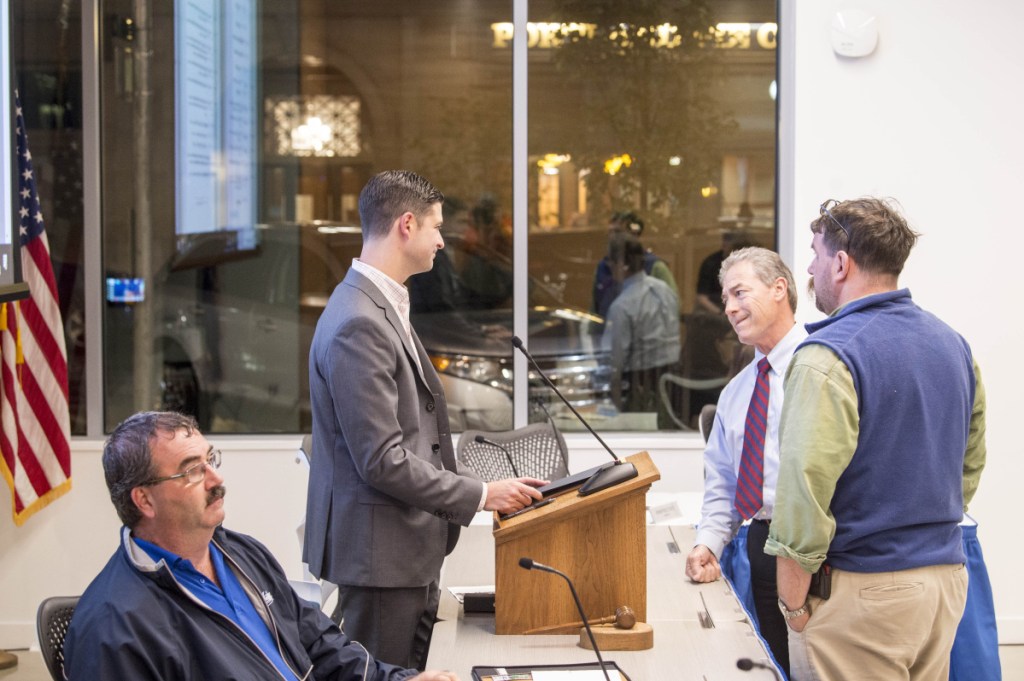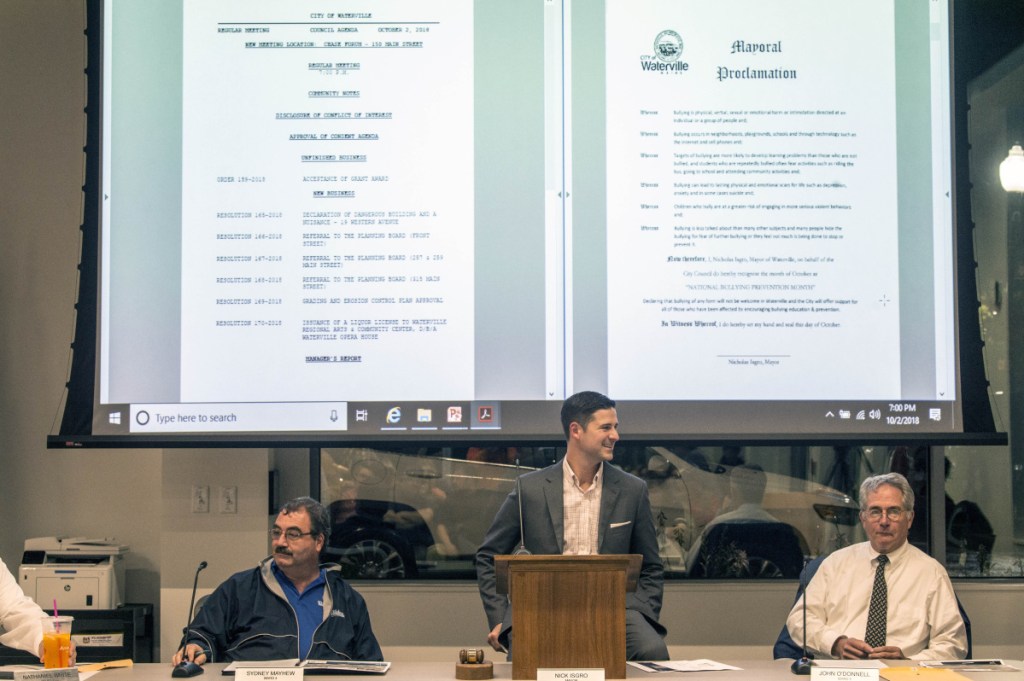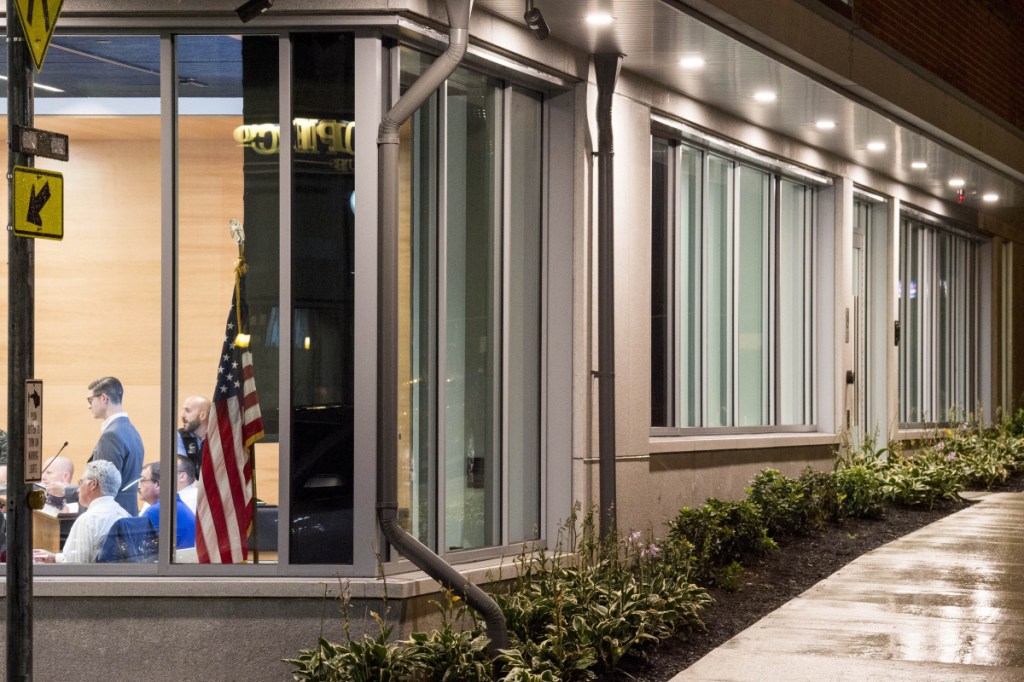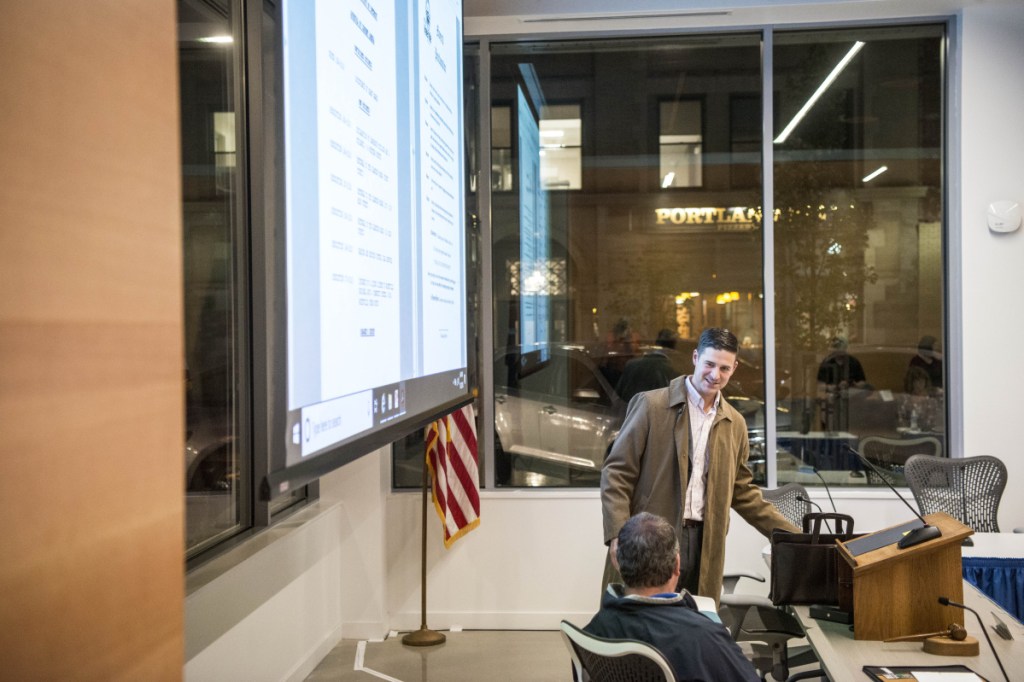WATERVILLE — The City Council voted 5-1 Tuesday to allow Police Chief Joseph Massey to spend up to $15,000 for a grading, drainage and sedimentation-erosion control plan for property off West River Road that is the site of wastewater lagoons used by the former Wyandotte Mill off West River Road.
The property was identified years ago as a possible location for a police department firearms training range that is estimated to cost $250,000 to build, but because truckloads of fill have been hauled there over the last 12 months from an athletic complex construction site at Colby College, Massey estimates the cost for a firing range has been decreased by about two thirds.
City officials explained Tuesday night that the grading, drainage and sedimentation-erosion control plan is not related to a proposal for a firearms training range — that the DEP is requiring the plan because of all the fill that has been hauled into the site over the last year. The $15,000 will come from the police department’s drug forfeiture account.
The vote the council took Tuesday did not authorize a firing range to be developed, and city officials indicated the firing range issue would come before the city again sometime in the future.
Councilor John O’Donnell, D-Ward 5, was the lone dissenter in the vote to spend $15,000 for the plan. He said after the meeting that he opposed it because the city is spending $600 a year to use Winslow’s firearms training range and the city has had a lot of “financial crunches.”
“Now, they’re talking about spending probably a conservative estimate of $75,000 that could probably allow us to continue using Winslow’s range for over 100 years,” O’Donnell said.
About 50 people turned out for the meeting, held for the first time in the Chace Community Forum at the Bill & Joan Alfond Main Street Commons at 150 Main St.
The lagoons from the former Wyandotte Mill site, which now is Trafton Properties, are located across West River Road near the intersection of Trafton Road.
City Manager Michael Roy said Monday that the contractor working on the Colby athletic project asked if there was a place he could deposit fill in the city and city officials cited the lagoon site, where fill has been used to build the walls for a firing range and to add another layer of cap for the lagoon containing sediment and other material.
Both Roy and Massey said the police department and other law enforcement agencies have been using Winslow’s firearms training range, but Waterville really needs its own range as it is a large department and trains frequently and scheduling in Winslow can be challenging. Massey said the northernmost lagoon is the one being considered for the range.
The two city-owned wastewater lagoons containing sediment and heavy metals from the former Wyandotte woolen mill’s operation many years ago were remediated by the state Department of Environmental Protection in 2013 and the state paid the full $200,000 cost for that.
The DEP, with help from the city, drained the lagoons, put sediment from one lagoon into the other and capped them. Roy said some of the fill hauled to the site by the Colby contractor was used to add more cap to the lagoon which received extra sediment. The lagoons are about 2.5 acres each and on 33 acres the city foreclosed on in February 2008. Waterville Industries Inc., a defunct Rhode Island corporation, had owned the property and had not paid taxes on it since the mid-1990s.
On Tuesday night, Massey said the site is probably the only place in the city that would be suitable for a firing range. Mayor Nick Isgro asked Massey if he had thought about where the money would come from to build the range. Massey said he is hoping to get more fill from another construction project, and there is a possibility for using drug forfeiture funds as well.
“The bottom line is, we need a firearms range and we can’t get away from that,” he said.
Some area residents had concerns about putting a range in that spot. Vassalboro resident Priscilla Doel said she lives diagonally across the Kennebec River from the site and a firing range would create noise pollution and affect the quality of life for her and her pet. She said that area is one of the most beautiful stretches along the river.
Doel suggested police continue for the time being using Winslow’s range, reconsider the whole issue and consider constructing an indoor, soundproof range.
“It’s quality of life and I think that’s something that has not been considered at all,” she said.
Andy Collar said he lives next to the proposed firearms training site, is a gun owner and member of the National Rifle Association, and supports the police department. He asked that, if a range is considered, the police department be the only entity to use it and that a curfew be implemented for hours of firing at the site.
In other matters Tuesday, councilors voted 6-0 to declare an apartment building at 19 Western Ave. dangerous and a nuisance and gave the owner, Leonard D. Poulin Jr., 60 days in which to demolish the building, which was heavily damaged by fire in 2012, remove the debris and fill in any holes left by the demolition. If he does not do so, the city will demolish it, remove the debris and fill in any holes, according to the resolution the council considered Tuesday.
The cost of that work and any other fees shall be paid by the owner within 30 days or a special tax for the amount will be assessed against the land and remaining building, collectible in the same manner as real estate taxes, the resolution says. Poulin has 30 days in which to appeal the decision to the Superior Court.
The vote followed a lengthy session similar to a court hearing, in which City Solicitor Bill Lee spoke and an attorney from his office, Mariah Gleaton, questioned all parties, including Code Enforcement Officer Dan Bradstreet, Garth Collins, his ordinance compliance officer, and Poulin, with Collins and Bradstreet saying they had asked Poulin repeatedly to fix the building.
Councilors looked at photographs of the building showing a hole in the roof, broken windows and a lot of debris inside, and neighbors spoke about the property emitting an odor and being an eyesore. They also said they thought it devalued neighboring properties. Poulin said he had intended to fix the building up, but it would cost about $100,000 and he did not have the funds. He offered to fix the hole in the roof and the broken windows. After the council vote, Poulin indicated he planned to appeal.
“You do realize this is going to incur a lot of legal costs for both sides,” he said.
The council also voted 6-0 to refer to the Planning Board for a public hearing and recommendation for a request to rezone part of city-owned land at Head of Falls off Front Street from Commercial-A to Contract Zoned District-Commercial-A. Roy said Monday that the city is thinking of offering a lot for sale so it could be developed with a multi-use building that would complement what already is at the riverfront. The building could house offices, a restaurant and other uses, for instance, according to Roy.
Councilors also voted 6-0 to refer to the Planning Board a request by John Goodine and Philip Roy to rezone 257 and 259 Main St., as well as 11 Hillside Avenue from Residential-C to Commercial-A. The council voted to refer to the Planning Board a request by Frederick Fischer to rezone 315 Main St. from Commercial-B and Residential-B to Commercial-A.
Isgro read aloud a document proclaiming the month of October National Bullying Prevention Month after resident Scott McAdoo two weeks ago asked the council to support such a move. McAdoo said he had been bullied as a child in school and described how hurtful and damaging that was.
Amy Calder — 861-9247
Twitter: @AmyCalder17
Send questions/comments to the editors.


